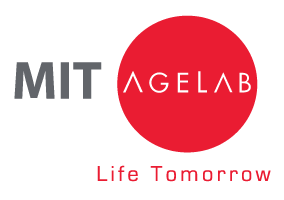Have you heard of FoMO, FoBO, and FoDA? Fear of missing out, fear of a better option, and fear of doing anything are linked to the endless choices available to us. The ideas behind these acronyms can make us feel like we’re not making the right decision.
Likewise, as you enter what the MIT AgeLab calls “the big decision phase” of retirement, you’ll likely face a myriad of decisions, which may include:

- Should I move to a warmer climate?
- How will I get around?
- Retirement community or assisted living?
- Should we move closer to family?
- Should we make our home more age-friendly?
- If I’m not working, what will I do with all my time?
- Who will I spend time with?
Let’s look at some tips for navigating this phase of retirement.
This Phase Takes Shape as Work Fades From View
Work may be replaced by increased volunteering, grandparenting, travel plans, or hobbies. While health status may be less vibrant than before, the second phase of retirement provides a greater opportunity to make or renew social connections. Friends now have more time to socialize and even travel together. While this phase is best characterized by more ‘free’ time, it’s a key time for making big decisions.
Financial Questions Arise
Retirees in the big decision phase draw a greater share of their income from their savings and live off the interest from investments and Social Security. Many tend to be on a fixed income. In this face, retirees may face financial decisions, such as:
- Should I convert my savings to annuities?
- Did I choose the right Medicare advantage plan?
- When do assets need to be withdrawn to avoid tax penalties?
- Are reverse mortgages worth it?
- Do I need a power of attorney?
- How much would assisted living or a nursing home cost?
- Do I need an estate plan?
- Should I provide financial support to my children, grandchildren, and parents?
Where Will We Live?
In this phase, retirees are confronted with tactical questions. “Now that we’re fully retired, should we buy a new car for both transportation and personal reward?” “Should we stay in our hometown or move somewhere warmer?” “Will life be easier if we downsize?” “Can we afford our current lifestyle for the long term?”
As empty nesters face issues regarding changing housing needs, the option to downsize may be appealing. For many, concerns about the cost of home maintenance, proximity to family, access to services, and livability of their existing home, such as having a master bedroom and other necessities on the first floor when stairs are no longer manageable, are reason enough to leave the house, the town, or even the state.
Questions About Caring for Parents
Individuals in their 70s are increasingly finding they’re fortunate to still have living, but frail, parents. However, caring for their elderly parents may be less about day-to-day assistance and more about making critical decisions related to senior housing, nursing care, or healthcare. You may need to weigh options about caregiving for parents, including cost, quality of care, and location. Demographic trends indicate that the need to provide care for aging parents will keep rising. The population aged 85 and older is expected to more than double from 6.7 million in 2020 to 14.4 million by 2040.1
Questions About Health and Wellbeing
From a health perspective, chronic conditions that people were diagnosed with in their 50s or 60s may now be causing significant physiological changes. For example, diabetes managed poorly could now be affecting one’s eyesight or mobility.
Changing health status and the greater concern for financial security may require additional professional advice. Ironically, trusted physicians, financial professional, or lawyers may be retiring just when you need them most. Searching and choosing a new physician or financial professionals after years, if not decades, is not easy and often requires considerable research and time.
How to Prepare for the Big Decision Phase?
Learn how to make your home more age-friendly
Find a Certified Aging in Place Specialist (CAPS) in your area by visiting the National Association of Home Builders (NAHB) website nahb.org/nahb-community/nahb-directories. Choose “Professionals with home building designations,” then select “CAPS” designation to see results. Then contact a CAPS specialist to schedule an appointment for them to assess how age-friendly your home is and identify potential modifications.
Ask your financial professional about people they know who’ve gone through this phase
Retirees who’ve already gone through the big decision phase can provide first-hand perspectives about the challenges and opportunities they experienced.
Learn about housing options
Schedule a tour of local senior communities, including independent living communities, continuing care facilities, or assisted living communities. To find communities, google “US News Announces 2024 Best Senior Living Ratings.”
Explore apps and sites that help you manage health issues
Visit hartfordfunds.com/change
So Many Decisions
When retirees enter the big decision phase, work tends to wind down. They have much more time on their hands. It’s a phase many look forward to, with dreams of family time, hobbies, and travel. But this phase comes with lots of questions that requires lots of decisions.
Planning for this phase, and each of the four retirement phases individually, makes planning more approachable. This framework allows people to contextualize, understand, and ultimately prepare for their lives in retirement. While not necessarily as enticing as planning for today’s nearly singular vision of a retirement filled with cruises and golf courses, the proposed framework is a realistic tool to empower retirees. The four-phases enable a clear vision to plan and anticipate what’s likely to come. Effective preparation can thereby reduce the stress of uncertainty and boost prolonged independence and control in the life so many wish to lead tomorrow.
Next Steps
| 1 | Visit nahb.org/nahb-community/nahb-directories to find a CAPS specialist |
| 2 | Visit aging communities in your area such as an independent living community, an assisted living community, and a continuing care retirement community to learn about your housing options as you age |
| 3 | To learn about the other three phases of an 8,000 day retirement, visit hartfordfunds.com/phases |
1 Aging In Place Statistics And Facts In 2024, Forbes, 5/2/24
The MIT AgeLab is not an affiliate or subsidiary of Hartford Funds.






